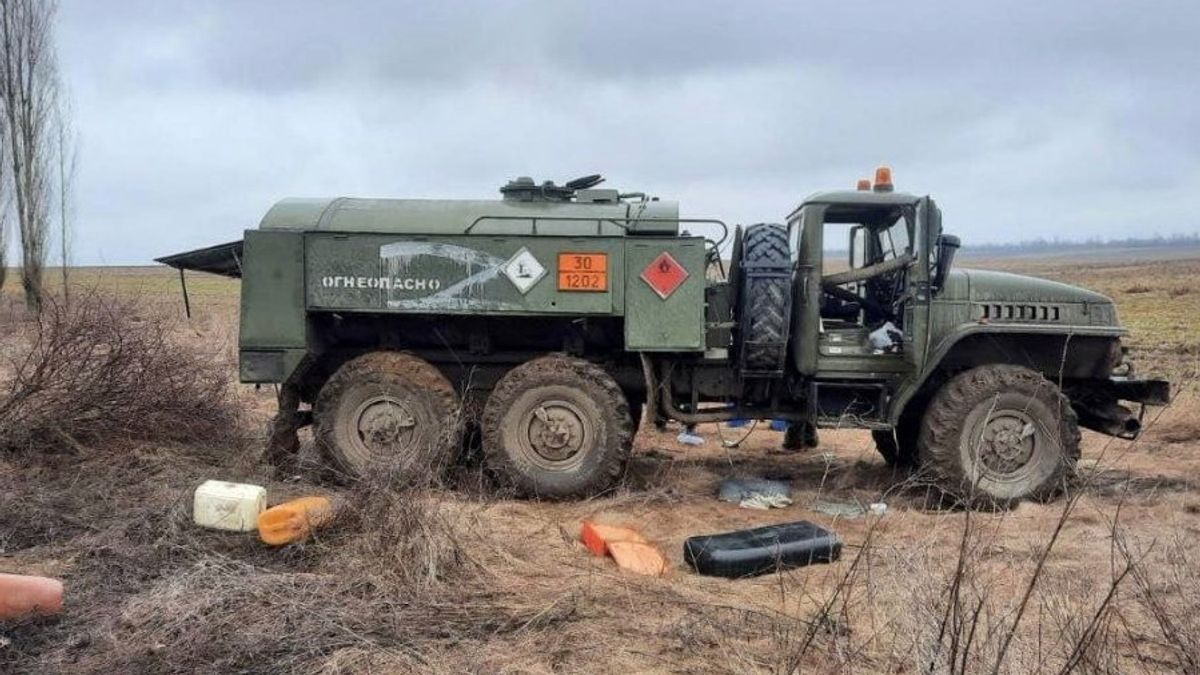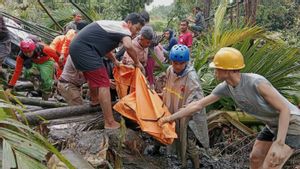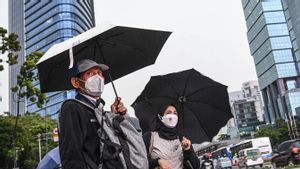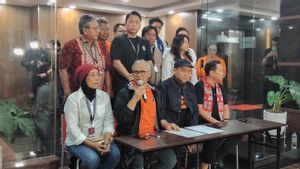JAKARTA - The Ukrainian government plans to urge about 50 technology companies, including those in the fields of gaming, esports and internet infrastructure, to take action against Russia following many previous requests that have not been executed.
A request from a top technology official of the Ukrainian government, Wednesday 2 March, tweeted from the twitter account of the Ukrainian Ministry of Digital Transformation asking technology companies to stop doing business in Russia amid the country's invasion of Ukraine.
This request was immediately responded to by the software giant Oracle Corp., in just three hours on Wednesday.
Russia's Deputy Minister of Digital, Alexander Bornyakov, showed a tweet Oracle had just posted on his phone during a video interview, which said the company "has already suspended all operations in the Russian Federation". EA Games also did the same last Wednesday by saying it would remove the Russian team from the FIFA soccer game.
"The more sanctions are imposed, the faster peace is restored," Bornyakov said of his ministry's campaign, as quoted by Reuters. wearing a hood and sitting in front of the Ukrainian flag. He also described conditions in his country several times a day, sirens warning them of air raids and they had to move to bunkers.
"Ukraine has asked for support from about 50 companies since the Russian invasion began last week," Bornyakov said. The outreach, which includes a tweet from Deputy Prime Minister Mykhailo Fedorov calling on CEOs from Silicon Valley to take action.
Their request has also been received. Starlink has helped bring satellite internet to Ukraine. Meanwhile, new restrictions on Russian state media have also been put in place by YouTube and Alphabet on other social media services.
Bornyakov said among the companies also expected to take action is Akamai Technologies Inc., which provides cybersecurity and content delivery tools to websites.
Akamai said on Tuesday, March 1, that it would stop serving customers who were sanctioned but had no clients. These include Russian airline Aeroflot, which has been sanctioned by the US since February 22.
The ministry has also asked Google and Apple Inc. to close their mobile app stores in Russia. But Bornyakov said companies were more likely to block downloads of certain apps.
The call to tech companies is part of a broader strategy undertaken by Ukraine to isolate Russia and get their people to protest President Vladimir Putin's move to invade Ukraine.
In addition the "IT Army" volunteers at home and abroad, which are partly organized by the Ukrainian digital ministry through the messaging application Telegram. "They have disrupted access to Russian government websites and contacted some 50 million Russian civilians via social media, telephone and text with information about the Russian invasion," Bornyakov said.
He also said these online troops now number more than 250,000 people, who are running their own ideas. "It's like crypto, it's decentralized," he said.
Bornyakov expressed little concern about cyberattacks from Russia, and said their infrastructure was weak.
In recent days, the owners of Facebook Meta, Twitter and YouTube said they had removed influence operations and hacking attempts targeting Ukraine.
Ukraine also plans to sell NFTs, or non-exchangeable tokens, a type of digital asset, to help fund the army.
"We will prepare lots of cool Ukrainian-style images and 3D models. If you buy this NFT, all donations will go to support the Ukrainian army and citizens," Bornyakov said. The Ukrainian government has also raised millions in cryptocurrency donations.
Prior to the Russian invasion, Bornyakov said the technology ministry had focused on moving all government services online. He said this effort meant already working with tech companies like Apple and Microsoft on projects like digital passports.
The ministry is also communicating with venture funds to invest in Ukrainian start-ups and wants big tech companies to open research and development centers for artificial intelligence and virtual reality in Ukraine.
But that plan has changed due to the Russian invasion. "Now, we have to shift to a completely different focus. And that's actually very sad," he said.
The English, Chinese, Japanese, Arabic, and French versions are automatically generated by the AI. So there may still be inaccuracies in translating, please always see Indonesian as our main language. (system supported by DigitalSiber.id)










